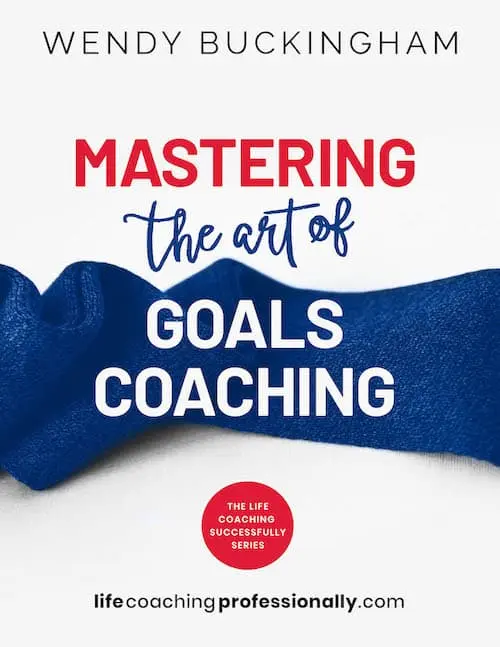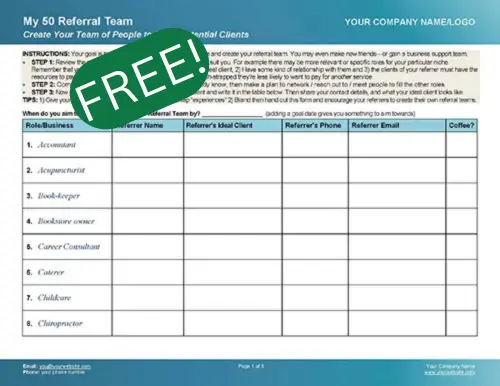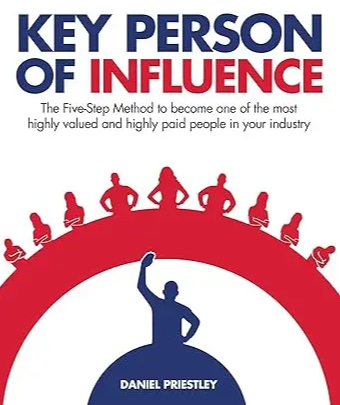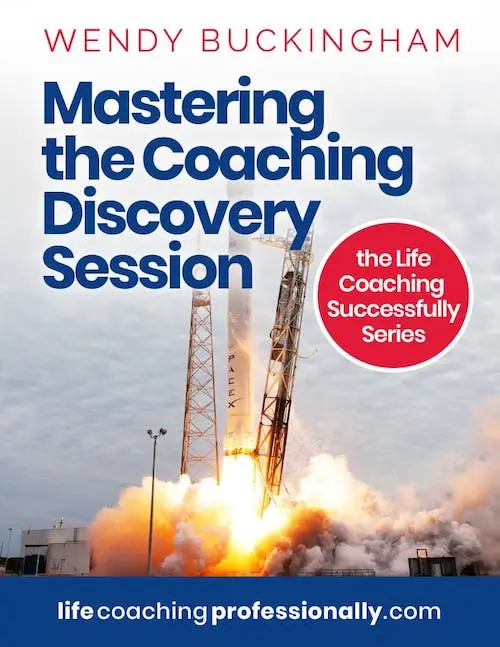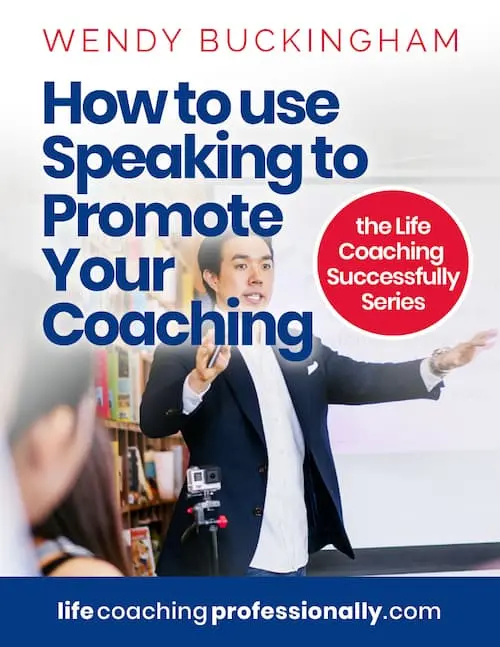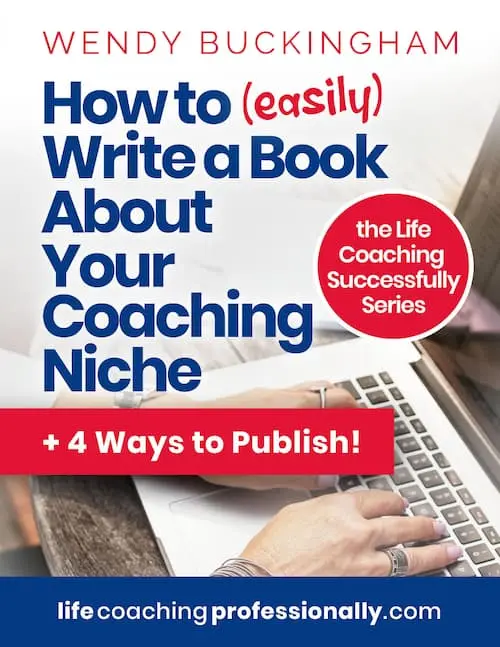- Life Coaching
- Marketing
- Coach Referrals
How to Design a Coach Referrals Program
A coach referral program is an arrangement where coaches build alliances with other coaches or allied services to exchange client referrals. Setting such a strategic alliance up can be a fantastic way to grow and build any type of coaching business.
In this article, you will learn how to get referrals with a coach referrals program to bring you more quality clients and make beneficial business collaborations.
I've also created a couple of sample coach referral agreements, one formal the other a letter of understanding, for you to download and adapt to your coaching.
Quick Links
How Do You Find Partners For Coach Referrals?
The trick to finding good referral partnerships for your coaching is to look for someone who has influence with your target market and the capacity to refer a lot of possible clients.
So, the question to ask yourself is:
"Who has my possible coaching client and where can I find them?"
In other words, who is likely to have clients who may need what you offer as a life coach. There will be plenty of related fields depending on your coaching niche or specialty.
For instance:
Read more...
- A career coach - has opportunities to set up an alliance with a recruitment company or local high school or college.
- A relationship coach - may find a referral partnership with a divorce coach, a lawyer, a dating coach or a confidence coach a good cross referral source.
- A fitness or health coach - may benefit from a referral partnership with a gym, a doctor or a nutritionist
- A therapist - can be a great referral partner for when you feel a client needs this rather than or in addition to your coaching. In turn they may pass on clients who you think may benefit from coaching as well as therapy.
- Local Chambers of Commerce or Business Networking Groups - Become a member of your local chamber of commerce or business networking group where they may be referral opportunities. Connecting with them can be through networking, either in person or through social media forums where you get to chat and create beneficial relationships.
- You'll find more on finding where your potential clients hang out and making the most of networking opportunities in my pages on networking in person and on social media.
Seven Strategies To A Successful Coach Referral Partnership
These seven key strategies will help you achieve a successful referral relationship. As you will see, there should be rules to agree on and traps to avoid to make sure the partnership is a profitable success, rather than a regretted failure.
1. Are there good opportunities for mutual client referrals?
 Coach Referral Strategies to Grow Your Practice
Coach Referral Strategies to Grow Your PracticeWhen someone approaches with an offer of working with you to exchange references it’s because they find you and your coaching practice attractive and see benefits for them in hooking up with you. And that’s great for the ego!
But you need to make sure that they are as attractive to you, as a partner to refer people to and can offer something of equal benefit to flow your way.
Of course, some of the people you refer clients on to may just be part of your service - and offer no defined real benefit to you.
However, in gratitude they may pass on favorable comments about you - that can raise your profile and possibly also result in clients.
2. Discuss all the benefits and considerations of the proposed strategic partnership
Have an initial meeting to get clear on what both of you can offer, how it will work and what you hope to achieve from the partnership. Set some firm goals and outcomes for what the partnership aims to achieve.
In that meeting also conduct a no holds barred (but polite) conversation where you not only discuss all the benefits you see in working together, but lay out all the considerations, even fears you have about what could possibly not work or go wrong.
Getting all this out in the open right at the start and having the necessary conversations to clear up any misconceptions or misunderstandings is essential to save future disagreements and disappointments. It also helps you to get to know the other party really well!
3. Seek the opinions of others who have worked with a prospective referral partner
Ask questions of colleagues or friends who have worked with this person or company. Here are some of the things you might want to check out.
- How did their referral partnership work?
- Did the partnership provide the referral results they had hoped for?
- Were they reliable in their communications?
- Did they stick to the partnership agreements?
Read more...
4. Catch up and check in regularly
A good policy is to have regular catch-ups to discuss how it is going, ask questions and handle any problems, considerations and possible misunderstandings, however seemingly trivial.
In other words, keep the space between you "clean" and don’t let uncertainties fester into upsets that could destroy the integrity of the relationship.
5. Why have a trial period?
Not all referral partnerships that you establish will work. For instance you may find you are sending a lot of business their way but nothing is coming your way. Or you get unfavorable feedback from your clients.
A trial period (say three or six months) with regular catchups, allows both parties to enter into it more confidently knowing that they have an agreed amicable "out" if it is not working for them.
6. Why put everything in writing?
If you are forming a referral partnership where money or some other tangible service or product is involved in exchange for referrals, put it in writing. Having a written, signed agreement will prevent any misunderstandings.
If the intended partner questions the need for this written agreement, tell them it is for the benefit of you both so there are no misunderstandings.
Also confirm in writing (text or email) any new decisions made when you meet, so you know you are still in agreement. Request a confirmation back.
Be wary if there are initial delays in communication responses, excuses or justifications. It could be a taste of unreliability and problems to come. Express your concern and nip it in the bud!
Download These Free Sample Coach Referrals Agreements
It's very important for a coach referrals partnership to have firm agreements in place as to how the alliance will operate. These agreements need to be in writing, so there are no grey areas or misunderstandings down the track.
This links you to two versions of a referrals partnership agreement which you can download for free.
Read more...
- A formal agreement signed by both.
- A letter of understanding to use if it is a casual agreement.
I have supplied both templates as Microsoft Word docs so you have the freedom and flexibility to adapt them to your particular coaching referral needs. I recommend you add them to your letterhead before using them.
You can read more about making a coaching alliance for referrals work for you above.
7. Why have Clear Goals for the Coaching Partnership?
You need to make sure that both partners are on the same page when it comes to what they individually and as a team want to achieve.
My book, Mastering the Art of Goals Coaching (click on the link to get a taster of the content) is a particularly useful handbook for you to use to set goals, whether for yourself or with any partner, formal or informal.
One section deals with failed goals which may help you get positive about the referral relationship again if you have had a previous bad experience with a referral partner.
Another, guides you with the challenges and pitfalls of joint goal setting and how to make it work successfully.
Free Template Download: Create 50 coaching alliances
The Coaching Tools Company has created a really useful (and free) template to help you create and keep track of your referral network. You can download this coaching referrals template to:
- Identify up to 50 people in different fields and professions who are possible referral partners for your coaching practice.
- Record the preferred type of client each referrer on your list wants.
- Track your progress as you get to know each referrer and form a relationship with them.
- This will help you create the "win-win” of a two-way referral funnel.
Download this coaching referral template created by the Coaching Tools Company, for free.
FAQ's About Coach Referrals And Strategic Alliances
Read more...
How
can I make sure a referral is a good match for me?
How
can I make sure a referral is a good match for me?
First, you will have been clear with your referral alliance about the type of client you are looking for. Then, you will check them through using my “Mastering the Discovery Session” process or my questions to ask before and during the Discovery Session.
Where
do I find good coaching referrals partnerships?
Where
do I find good coaching referrals partnerships?
Ask
yourself “who has my customer” and then
look for groups where those professional and businesses gather in person and on
social media. Also, for extra details, read my piece on this page; How to Find Coach Referral Partners.
What
is the difference between a coaching strategic alliance, a partnership, or a
joint venture?
What
is the difference between a coaching strategic alliance, a partnership, or a
joint venture?
The difference between a coaching strategic alliance, a partnership, or a joint venture in the coaching industry has become mainly semantics. Both terms are interchangeable.
A Coach Referrals Alliance or Partnership is a friendly collaboration to exchange referrals with either no money involved or an agreed upon fee.
A Joint venture is a shared project. An example would be co-presenting an event such as a webinar to give value and attract clients.
What
agreements should I have with my coach referral partner/alliance?
What
agreements should I have with my coach referral partner/alliance?
If you are creating a coach referral agreement with a strategic alliance, you can either have a formal agreement or a simple letter of understanding. Both should clearly set out the terms of your collaboration. I have a sample of a formal coach referral agreement and a letter of understanding which you can download for free, here.
Recommended Reading: Finding the best type of alliance partners
To get more help with finding the best type of strategic alliance partners for your coaching Become a Key Person of Influence by Daniel Priestley could be really useful
I loved this happy little book, full of information, illustrations, examples and Daniel's own experiences.
In particular there is a whole chapter on how to go about creating the various types of strategic partnerships. Check it out by clicking on the link or the image.
What Are The Benefits of a Coach Referrals Program?
By carefully selecting referral partners to collaborate with you can significantly increase your visibility, client possibilities and grow your coaching business.
The partnership can...
- Raise your profile as a credible and personally recommended professional coach.
- Give you the benefit of getting more quality leads without marketing expense
- Give you access to new concepts and skills you may not have yourself but can offer your clients access to.
- There may be opportunities for cost saving leveraged joint marketing ventures such as webinars.
In conclusion, if you carefully choose and research any referral partner opportunities and keep track of the benefit they are to you, they can be a great way of attracting more clients and expanding your network.
Wishing you lots of successful (and smooth) referral partnerships!
Wendy

More Help to Grow Your Coaching Skills and Promote Yourself
I have written a wide range of informative books (all from my own 25+ years' experience) that will help you to authentically attract new quality clients, increase your coaching skills and promote your coaching services.
100% Satisfaction or Your Money Back
I am sure you will get real value from each of these books. However, if within 30 days of purchase you are not 100% completely satisfied, you will receive a full 100% refund.

